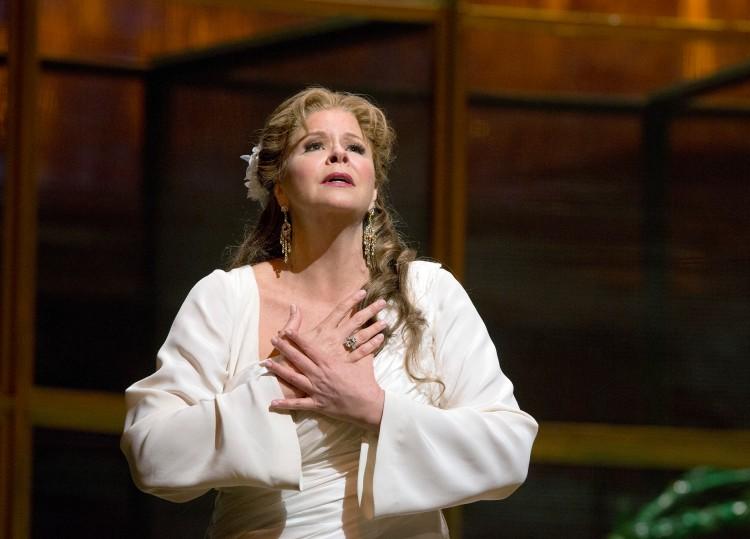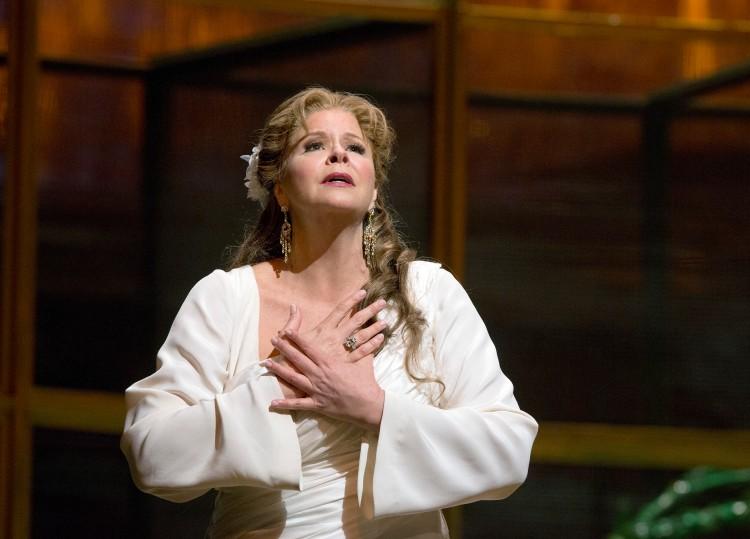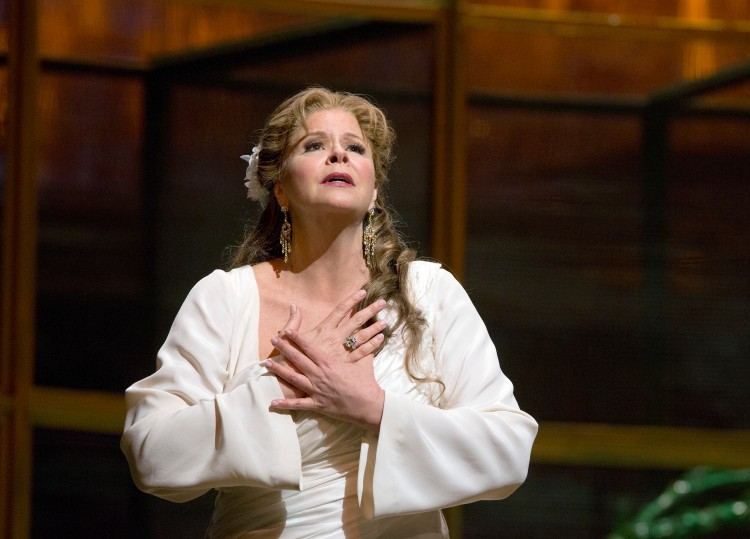This season the Metropolitan Opera is reviving Francesca Zambello’s 2003 production of Hector Berlioz’s opera “Les Troyens,” conducted by Fabio Luisi. While men may be the warriors in the epic opera, based on Virgil’s “Aeneid,” the women clearly dominate the performance, from Deborah Voigt’s Cassandra and, even more so, to Susan Graham’s Dido.
The action starts with the Greeks suddenly disappearing from their siege of Troy but leaving behind a giant wooden horse. The prophetess Cassandra (the daughter of the Trojan king) warns her people of their coming destruction but, like the Republicans and Nate Silver during the presidential election, they don’t listen.
The Greek soldiers are hidden in the horse and when they attack, the Trojan women collectively commit suicide. Meanwhile, Aeneas and some of his army escape. They land in Carthage, where Dido (a widow) is queen. When that city-state is threatened with attack by the Numidians, Aeneas combines his army with the Carthaginians and collectively they defeat the invaders. Aeneas and Dido fall in love, but the god Mercury and the ghosts of the Trojan royal family urge him to fulfill his destiny and go to Italy and found a new kingdom. He leaves with his men during the night without even saying goodbye to the queen. When Dido learns of his departure, she utters curses and then kills herself.
Voigt is effective as Cassandra, but the most memorable performance was Graham’s Dido. She conveyed a full range of emotions, from mourning her husband to love of Aeneas to fury after he sneaks off to sea.
There was beautiful tenor singing at “Les Troyens,” but it didn’t come from the lead but from the supporting players, Eric Cutler and Paul Appleby. As Aeneas, Marcello Giordani demonstrated that he can still knock out powerful high notes but his singing was effortful, lacking in the French style required to perform Berlioz’s score. As of last season, he was still effective in Puccini, so at this stage in his career, he should probably stick to verismo operas. Aeneas keeps announcing his intention to go to Italy. Giordani’s performance suggests that he was already there. Nevertheless, Graham’s Dido should not be missed.
“Les Troyens” is in repertory at the Met (metoperafamily.org; 212-362-6000) through January 5 when it will be broadcast as part of the Met’s “Live in HD” series. Mezzo-soprano Joyce DiDonato will host the transmission and conduct backstage interviews with the stars.
The Epoch Times publishes in 35 countries and in 20 languages. Subscribe to our e-newsletter.








